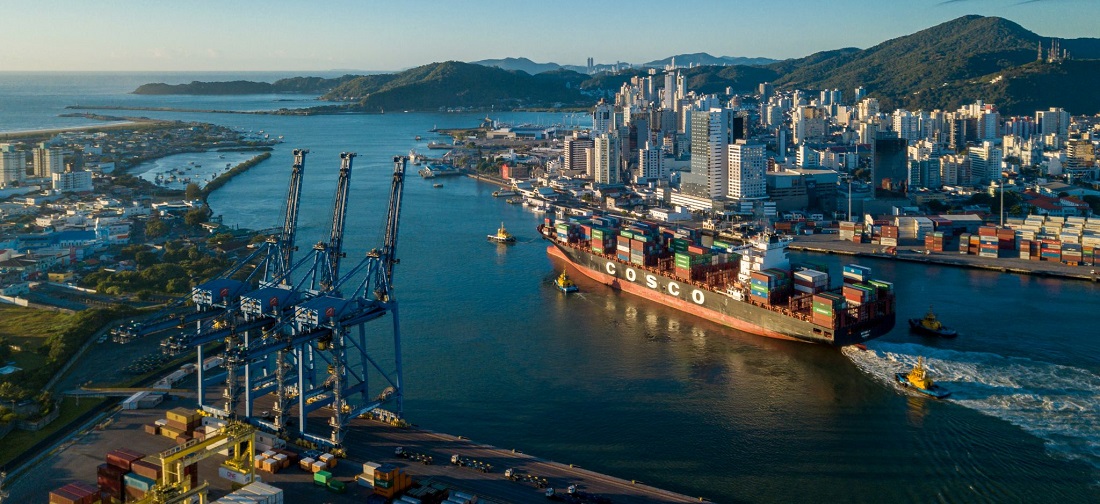
Unprecedented study reveals extent of racial disparity in Brazilian foreign trade
Nov, 07, 2024 Posted by Gabriel MalheirosWeek 202444
Brazil’s Vice President and Minister of Development, Industry, Commerce, and Services (MDIC), Geraldo Alckmin, and Minister of Racial Equality, Anielle Franco, launched the report “Foreign Trade and Racial Representation in the Brazilian Workforce” on Thursday, November 7. Prepared by the Foreign Trade Secretariat (Secex) of MDIC, the report offers an unprecedented snapshot of Black representation within Brazilian export and import firms.
The report finds that while Black representation has increased in foreign trade companies—rising from 34% to 41% among exporters over the past decade—significant inequalities remain in key roles, salary disparities, and other areas.
The study merges Secex data with microdata from the Yearly Social Information Report (RAIS) up to 2021. It shows that as of that year, Black individuals held only 20% of management and executive positions in export companies and 34% in domestic firms. Detailed data reveals that just 8.9% of directors and 21% of managers in exporting companies were Black. Among import firms, these figures were 11.2% and 24.5%, respectively. By contrast, in companies not involved in foreign trade, Black representation reached 23.6% in executive roles and 34.5% in managerial positions.
In terms of relative salary, Black workers earn 61% of the average wage of white employees in both exporting and importing companies. Across all racial groups, women earn less than men, with the most significant gap affecting Black women, who earn only 44.4% of the salaries of white men in export companies.
“Studies indicate that foreign trade firms tend to offer higher wages and employ a better-qualified workforce. This makes it especially important to collectively address barriers preventing this sector from actively promoting greater racial diversity,” states the foreword, signed by Alckmin and Anielle.
Foreign Trade Secretary Tatiana Prazeres added, “I am confident that foreign trade itself will benefit from a more diverse set of contributors.”
The report also led the MDIC to launch the “Inclusion and Racial Diversity in Brazilian Foreign Trade” program on Thursday, November 7. The program focuses on increasing participation and expanding Black-led companies in Brazil’s foreign trade sector and providing training to support their international operations (read more here).
Key findings of the report include:
Increased Black Representation: The share of Black people in the workforce has grown, rising from 51.5% in 2012 to 55.5% in 2021. Black participation in the formal workforce has increased across sectors, going from 39% to 47.8% in domestic firms, from 36.2% to 44.6% in import companies, and from 34.2% to 41.3% in export companies.
Gender and Racial Disparities: Racial inequality is more pronounced among women. In 2021, Black men made up 50.2% of workers in domestic firms, while Black women comprised only 44.3%. In foreign trade, the gap was wider: 42.6% for Black men versus 38.3% for Black women in exporting companies.
Sector Participation: Black workers are more prevalent in agricultural and extractive industries, exceeding 60% for men and 50% for women. They are least represented in manufacturing, where rates fall below 45%, regardless of a company’s foreign trade activity.
Product Complexity and Representation: Exporting firms with undifferentiated products (mainly commodities) have higher Black representation, with 46.8% among men and 39.9% among women. In firms exporting manufactured goods, these proportions drop to 34.2% for men and 32.4% for women.
Company Size: Larger companies employ a higher proportion of Black workers. Black men account for 57% of the workforce in large domestic companies, while Black women make up only 26.6% in small export firms.
Regional Trends: In 19 of Brazil’s 27 states, foreign trade firms employ a higher proportion of Black workers than domestic firms. However, nationwide, domestic firms still show greater Black representation.
Management Roles: Racial underrepresentation is most evident in executive and managerial roles, particularly in foreign trade companies. Only 8.9% of directors and 21% of managers in exporting firms are Black.
Wage Disparities: Black workers earn lower average wages compared to white workers. In export firms, Black employees earn 61.1% of the salary of white workers, while in import companies, this figure is 60.6%. In domestic firms, the wage gap narrows to 74.9%.
Salary Distribution: In foreign trade companies, Black workers receive 32.9% of the total payroll, while white workers receive 65.5%. In domestic firms, Black workers’ share of the payroll is 40.6%.
Education and Qualifications: The share of Black workers with higher education is lower in domestic companies (8.3% among Black employees). Overall, the education gap between Black and white employees is more pronounced in foreign trade companies. However, in executive and managerial roles, the education gap between Black and white employees is narrower in foreign trade firms.
These findings underscore the ongoing need for greater racial inclusion and equality in Brazil’s foreign trade sector.
-
Economy
Oct, 04, 2022
0
Brazilian trade balance surplus falls to USD 4bn in September
-
Oil and Gas
Aug, 01, 2019
0
Argentina offers tender for gas pipeline between Vaca Muerta and Buenos Aires
-
Ports and Terminals
Sep, 26, 2019
0
A new chapter of the dispute for the expansion of the Port of Manaus
-
Ports and Terminals
Apr, 29, 2022
0
The Port of Antonina is investing BRL 45M in six new barley, malt, and wheat silos

